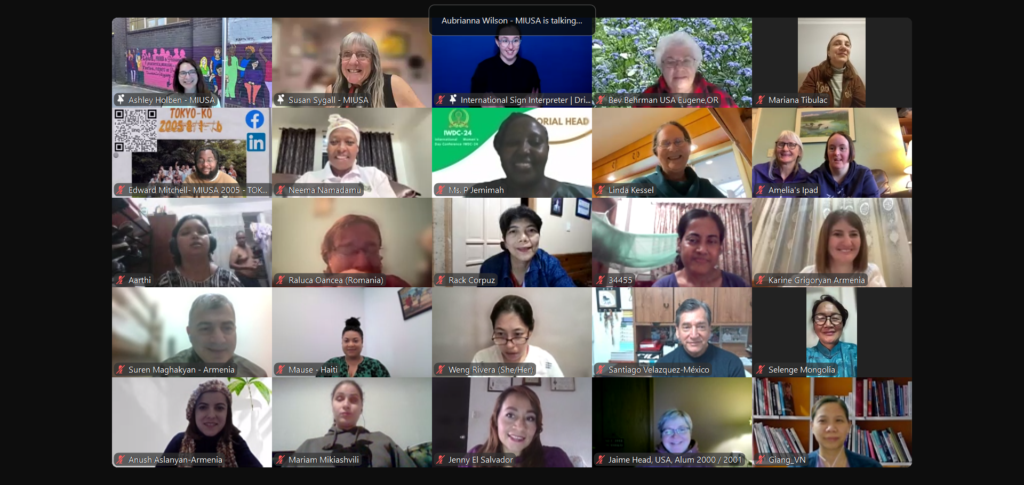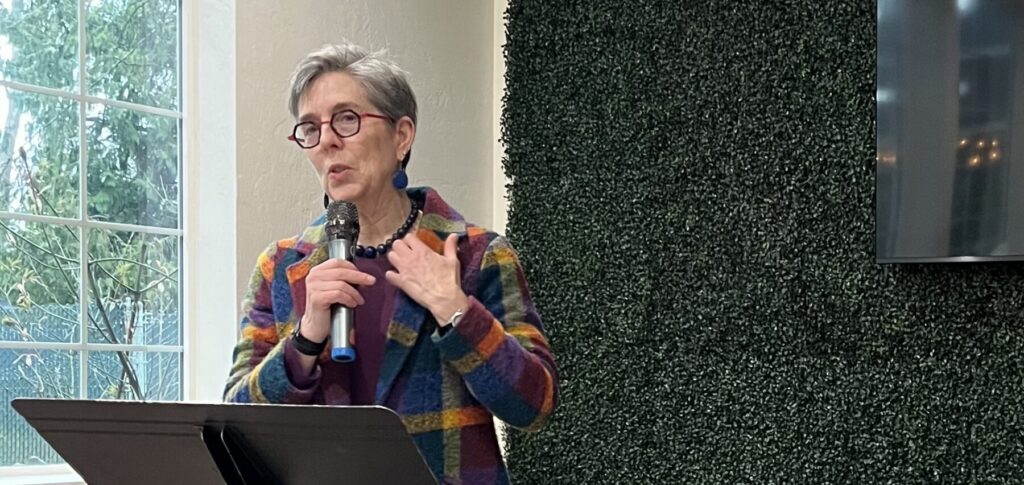Sitting at my desk on a freezing cold February day, while working at the University of Minnesota’s Learning Abroad Center, I clicked on a website link for the National Clearinghouse on Disability and Exchange, which took me to the webpage of a nonprofit I had not yet heard of, a disability-led NGO called Mobility International USA (MIUSA). I decided to make myself a note to take a closer look through MIUSA’s website and resources to see what kind of work they do. I had just completed my first semester of graduate school, I was in the process of applying for a full-time summer internship, and I was looking to intern for an NGO working to advance disability rights. Needless to say, MIUSA went to the top of my list of organizations to apply for a full-time professional internship with, and I was honored to accept my internship position to work for a summer on the RightsNow! project.
Pursuing my Master’s degree in Human Rights and continuously learning about human rights abuses and studying advocacy tactics, while managing anxiety and depression, has been a battle to say the least. My anxiety causes me to constantly be aware of grave injustices while looking for ways to better the world around me and beyond, and at the same time my depression contradicts that awareness by fighting back with overwhelming thoughts of smallness and hopelessness. Thankfully, with the support of those around me and treatment, I continue to fight this ongoing battle with depression and anxiety, and I continue to fight social injustices through my work and study. But that’s not my only story to tell—because I am a part of a much bigger story, one being written in part by an NGO in Eugene, Oregon—Mobility International USA.
As an undergraduate International Studies major, having taken multiple courses in human rights, and having participated in Model United Nations conferences throughout my undergraduate study, I thought I was familiar with international treaties such as the Convention on the Rights of Persons with Disabilities (CRPD). Then, in graduate school, having studied the recent historical development of international human rights discourse, I really thought I knew all about international law—in theory. But I didn’t truly learn what international human rights law was in practice until interning with MIUSA and working full-time on the RightsNow! Strong Communities through Enforcing the Rights of Persons with Disabilities project.
It was during my internship I learned that human rights in practice look a lot like a disabled people’s organization (DPO) in Mexico networking with people with disabilities, government representatives, lawyers, academics, and other members of civil society, to facilitate a three-day seminar on access to justice for people with disabilities. Human rights in practice look like the training-of-trainers approach (TOT) in Vietnam, in which Vietnamese RightsNow! participants with disabilities implement their own training plans to conduct workshops for other disabled persons on effective disability rights implementation strategies, such as cross-disability collaboration. Human rights in practice look a lot like the disability-led Coalition for Inclusive Legal Reform (CILR) in Armenia coordinating 12 community meetings in various regions of the country in order to advocate for rights-based amendments to the country’s draft Disability Law.
My short 11 weeks with MIUSA was a summer of both personal empowerment and professional growth. My internship empowered me to be “loud and proud” about my own disability, and MIUSA has enabled me to become a more passionate mental health advocate as well as a more well-equipped ally in the cross-disability rights movement. Working on the RightsNow! project team has enabled me to directly apply international legal concepts and theories that I had learned in classrooms and textbooks, to disability rights advocacy tactics in practice. More importantly, the four-year RightsNow! project, and the team who has worked tirelessly on it, has equipped disabled leaders and their allies in six countries with the strategies and capacities to put the CRPD into tangible practice, and to continue the ongoing fight for the rights of people with disabilities.
Sign up for our E-News






Manage Your Privacy